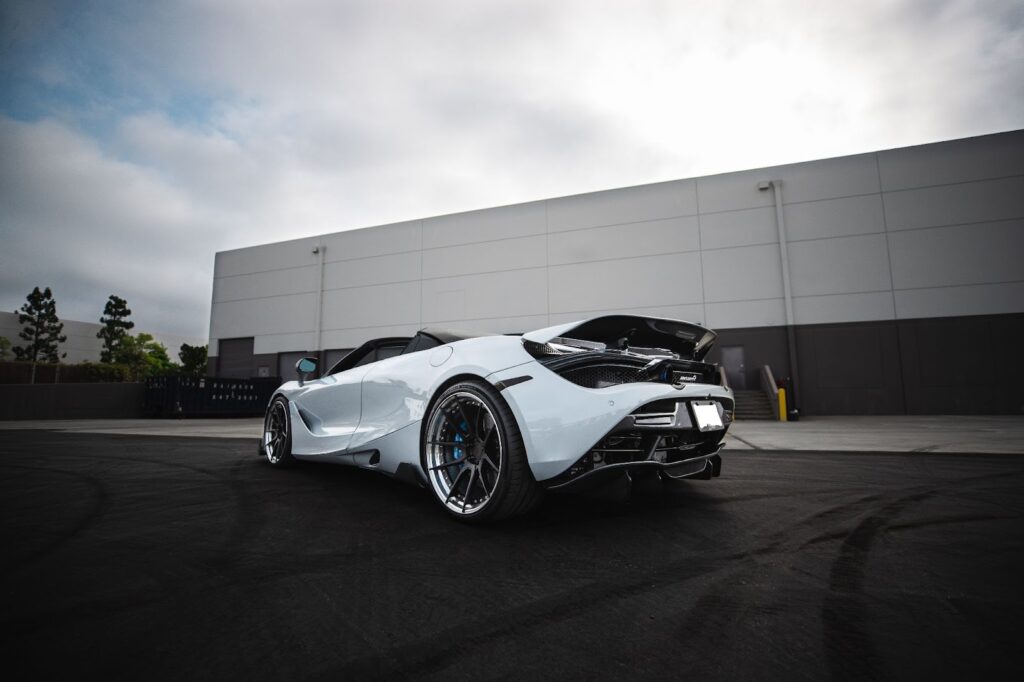How Is The Off Road Racing Industry Changing?
To understand how the off-road racing industry is changing, the shift towards electric-powered vehicles is a significant factor. In this section, we’ll discuss the growing trend of electric-powered vehicles in off-road racing. We’ll provide a brief overview of the category, its advantages, and perceived challenges.
Overview of Electric Powered Vehicles in Off Road Racing
The electrification of off-road racing is widely adopted by the motorsports industry.
| Race Series | Vehicles Used | Top Manufacturers |
| Extreme E | ODYSSEY 21 Electric SUV | Spark Racing Technology, Williams Advanced Engineering, Venturi Automobiles, ABT Sportsline, Veloce Racing |
| SCORE International Baja | E-Jeep Wrangler | Tesla, Rivian, Ford, Jeep |
| ElsaCross Electric Championship | Cars and Motorcycles Categories Converted into electric vehicles. | Tesla, Rimac Automobili d.o.o., Verge Sport, Agni Motors. |
Formula E technology has paved the way for energy-efficient electric power for off-road motorsport. This innovation offers a quieter and cleaner option for racers and spectators alike.
According to The Rake Magazine’s article on the history of the Dakar Rally race, “In January (2021), it was announced that a new series entitled Extreme E would launch with its inaugural event scheduled for April…Electric SUVs (will) compete against each other in some of the harshest environments.”
Who needs gas-guzzling monsters when you can silently glide through the desert like a ninja on an electric off-roader?
Advantages of Electric Powered Vehicles in Off Road Racing
Electric-powered vehicles offer several benefits in off-road racing technology. Here are six significant advantages that provide an edge over traditional fuel-based models.
- Instant Acceleration: Electric motors generate full torque instantly, and this power delivery is beneficial during starts and quick maneuvers in the race.
- No Engine Lag: Unlike internal combustion engines, electric vehicle motors do not need to rev up before they produce maximum power, ensuring effective power output throughout the race.
- No Exhaust Emissions: Electric vehicles eliminate exhaust emissions, which allows racers to compete indoors without toxic fumes or damaging air quality.
- Silence of Operation: The reduced noise levels allow better communication between driver and team during the race. This aspect also enhances viewer experience as spectators can engage more with the event by not requiring earplugs.
- Lower Maintenance Cost: Compared to internal combustion engines, electric-powered vehicles require minimal maintenance as there are fewer moving parts that break down due to wear and tear.
- Energy Recovery & Regeneration: Many electric vehicle models have capabilities for energy recovery through regenerative braking systems that recharge batteries while slowing down.
Furthermore, electric cars also possess some unique features such as serving as a mobile generator capable of powering tools, equipment or charging other batteries/vehicles at remote locations.
In earlier times, off-road racing leagues like Baja 1000 allowed limited participation of eco-friendly vehicles gaining recognition for reliability and safety. However, the tide has turned positively for electric-powered models since Craig Davis broke world records on his homemade EV motorcycle in 1997 paving the way for further advancements in this field.
Looks like off-roading just got a whole lot quieter…and so did the fans.
Challenges of Electric Powered Vehicles in Off Road Racing
Electric power has been steadily gaining popularity in off road racing, but it is not without its challenges. One major obstacle is the limited range and capacity of electric batteries. The rough terrain and high speeds demanded by off road racing put a significant strain on battery systems. Additionally, unlike traditional fuel-based engines that can be refueled quickly, recharging an electric vehicle can take several hours, which may not be practical during a race.
To mitigate these challenges, engineers have been forced to design lightweight vehicles with highly efficient energy management systems. This requires creative solutions for components such as motors and controllers that can withstand the extreme conditions associated with off road racing.
While advancing technology has made electric vehicles increasingly competitive on the track, other hurdles remain. For example, regulatory standards and safety concerns surrounding high voltage electrical systems require careful consideration during the design process.
Despite these challenges, proponents of electric power claim that its inherent advantages – lower emissions and higher efficiency – make it a worthwhile pursuit for the future of off road racing.
In a similar manner, the adoption of this technology was witnessed in 2017 during Baja 1000 when Apdaly Lopez Jr drove an all-electric ‘Chevy Trax’ dubbed its ElectroTruck under SCORE rules and regulations; showcasing how far this technology had come towards being race-ready.
Off road racing is becoming more inclusive, but let’s be real, we all know who’s going to be the real competition: moms navigating the grocery store parking lot.
Inclusion of Women and Minorities in the Off Road Racing Industry
To address the lack of diversity in the off road racing industry, this section on the inclusion of women and minorities in the industry with a focus on the current state of inclusion, benefits of inclusion, and steps towards inclusion.
Current State of Inclusion in the Off Road Racing Industry
In the off-road racing industry, there is a lack of inclusive representation for women and minorities. The industry remains dominated by men, hindering progress in increasing diversity. The current state of inclusion in this industry calls for drastic measures to overhaul the patriarchal system and open up opportunities for marginalized groups.
Despite efforts made to promote inclusivity, such as the introduction of all-female races and diversity initiatives, the impact has been minimal. Women are still underrepresented in leadership roles, making it difficult to enact change from within. To truly thrive and grow, the industry must prioritize diversity and inclusion in recruitment, retention, and promotion practices.
Moreover, providing opportunities for mentorship programs specifically directed towards underrepresented groups can create more pathways for success. This can include financial or sponsored support for young women or minority drivers who would otherwise lack access to these resources.
In order to ensure longevity in this already competitive industry and reap the benefits of including diverse perspectives, it is crucial that we take action now. The future success of off-road racing relies on creating a space where everyone has an equal opportunity to participate. So let’s take responsibility as a community and ensure that we do not let fear of missing out on this potential keep us from progress towards full inclusivity.
More diversity in off-road racing means more interesting stories and less predictable outcomes on the track.

Benefits of Inclusion in the Off Road Racing Industry
The advantages of creating a diverse and inclusive off-road racing industry are immense. By recognizing and including women and minorities in the sport, it can open doors to new opportunities and growth for both the industry and its participants.
- Increased Participation: Including women and minorities in the off-road racing industry can attract new participants who might have been hesitant to engage earlier due to lack of representation.
- Diversity of Opinions: Involvement of people from multiple backgrounds leads to diversity in perspectives, thus leading to innovative ideas.
- Broader Consumer Base: More inclusion means more audience resulting in a broader consumer base for marketers
- Fostering Talent: Diversity fosters talent by providing opportunities irrespective of gender or ethnicity
- Promoting Unity: Bringing together individuals from various demographics promotes unity through teamwork, healthy competition, respect, mutual understanding among different groups.
In addition, helping women and minority off-road racers could also help break down stereotypes that prevail about them within the motorsports industry. The benefits are huge when seen in terms of progress for the sport as a whole. Lastly, we all must recognize that by ignoring these elements and continuing with an exclusive approach is not only inequitable but could also lead towards missing out on tapping new talent which results from coming up with new thoughts and approaches. Therefore it is vital to make efforts towards becoming more diverse. Finally, the industry recognized that women and minorities could drive fast too.
Steps Towards Inclusion in the Off Road Racing Industry
Aiming towards diversity in the off-road racing industry, we need to incorporate steps that bridge the gap between women and minorities, which have been underrepresented for a long time. Creating ample opportunities and providing equal access to resources can help bring balance to the industry.
- Initiating Diversity Programs: The industry needs to develop diversity programs that create awareness regarding inclusion. It’ll help familiarize people with different backgrounds with the available opportunities.
- Mentorship Programs: Creating mentorship programs that give participants access to renowned figures in the sport can provide valuable learning experiences while also helping them understand strategies and techniques used by seasoned racers.
- Roadblocks Identification: Identifying factors contributing to roadblocks and difficulties faced by women and minorities creates a better understanding of issues that need resolution amid more equitable participation
- Community Outreach Program: Organizing outreach programs fosters an inclusive culture among the community. Events like summer camps or scholarship programs for youth can be organized for initial exposure to careers in motorsports.
- Sponsorships and Partnerships: Partnership with companies committed to diversity and sponsorship of minority competitors can amplify the presence of marginalized groups on national platforms.
To enhance accessibility, arranging transportation services, budget-friendly entry fees, provision of safer equipment, etc., could help make it possible for more people from demographics traditionally excluded from this sport.
In addition, traditional stereotypes surrounding who is considered fit for off-road racing need breaking down so more potential enthusiasts may participate.
There’s still work ahead; minor changes won’t change much. A collective effort towards diversification is necessary so future generations don’t face similar obstructions. Unprecedented growth will encourage a positive environment allowing industry expansion ultimately rendering a new golden era of Off-road racing.
Sarah was interested in off-road racing since her childhood. However, she always felt out of place whenever she visited parks or attended competitions. After she completed college, she heard of a diversity program organized by one of the off-road racing clubs and became part of it. She learned about the different aspects of the industry from her mentor in the club while attending events regularly. Over time, Sarah honed her skills and finally participated in competition, where she earned third place overall. Today, Sarah is a big name in Off-road racing, inspiring other women to take up motorsports.
Off road racing is the perfect example of how technology can help you go faster, get dirtier, and impress absolutely no one.
Technological Advancements in Off Road Racing
To understand how the off road racing industry is changing with technology, take a look at the section on Technological Advancements in Off Road Racing, including an overview of the advancements, their benefits, and their impact on the industry. Gain insights into how these recent innovations are shaping the future of off road racing.
Overview of Technological Advancements in Off Road Racing
The revolution in technology has influenced the world of off-road racing by enabling faster, more efficient, and safer vehicles. Here is an overview of technological advancements in off-road racing:
| Technology | Impact on Off-Road Racing |
| Suspension Systems | Better control and stability on any terrain. |
| Traction Control System | Ensures better grip and traction for fast acceleration. |
| Carbon Fiber Components | Lightweight, durable body parts improve speed and fuel efficiency. |
| Digital Dashboards | Better viewing angles at high speeds for safer race management. |
Aside from these advancements, modern-day tires engineered to withstand extreme racing conditions with computer-controlled suspension systems are making their way into off-road events. On-board navigation equipment utilizing GPS technology enables quicker response times in course corrections, which is critical when running with reduced visibility. It is noteworthy that electric-powered cars have yet to make a significant impact in the sports’ competitive circuit. According to the Australian Motorcycle News report, Casey Currie became the first-ever American driver to win back-to-back Dakar Rally crowns after winning his second title in this year’s race held in Saudi Arabia. Off-road racing just got a tech upgrade, and now even the dirt is afraid of these vehicles.
Benefits of Technological Advancements in Off Road Racing
Off-road racing is significantly benefitting from the continuous evolution of technology. The advancements are enabling racers to improve their performance and push the limits of the sport beyond boundaries.
- Improved Safety: Technological advancements have contributed significantly in enhancing safety measures through better gear, specialized engine design and custom-built vehicles that disperse impact load more efficiently.
- Higher speeds: In off road racing, speed is crucial for victory. Technological advances have made it possible to build faster vehicles by optimizing the aerodynamics, lightweight materials and high-performance engines.
- Advanced Communication and Data Collection: It’s essential for racers to have a good communication network at all times. They need real-time feedback on weather changes like unexpected storms. Technological enhancements allow transmission of accurate data while collecting game-changing information regarding vehicle status and issues that require attention.
- Limited Human Error: Technology simplifies tasks during races. AI-assisted navigation systems eliminate human error due to distraction or unfamiliarity with terrain reducing unnecessary pit stops, wrong turns and delays.
- Richer Experience for Spectators: With advanced techniques such as drone cameras providing an in-depth view from various angles, satellite link-ups worldwide broadcast off-road racing which has expanded its scope beyond just a race but also a spectacle for viewers globally
By staying up-to-date on advances in technology research, engineering teams can make better decisions based on data analysis. The future seems incredibly bright with remarkable innovations paving the way for even more awe-inspiring technological breakthroughs.
For anyone who wishes to stay ahead of innovation understands the importance of developing an unfillable appetite for exploring continued improvement in technology as progress will continue to shape industries.
Off road racing has evolved so much thanks to technology, even the rocks and dirt have started complaining about being left behind.
Impact of Technological Advancements in Off Road Racing Industry
Technological innovations have had a significant impact on the Off-Road Racing Industry. The industry has witnessed an array of advanced technologies that aim to enhance its overall performance and provide drivers with optimal racing experiences.
| Technological Advancements | Impact |
| Tire Design | Improved Traction and Durability |
| Suspension Systems | Better Handling and Stability |
| Engine Tuning Software | Enhanced Power and Efficiency |
One unique advancement is the design of tires specifically for off-road racing, providing better grip on uneven surfaces, in muddy or rocky terrain, and thereby increasing durability over time. Advanced suspension systems have also been developed, which support better handling, stability, and a smoother ride quality. In addition to this, specialized engine tuning software provides increased power output while maximizing efficiency.
In accordance with these advancements, it is vital to note that the safety standards for off-road racing remain paramount. As per the data provided by the FIA (Fédération Internationale de l’Automobile), there have been no server fatal accidents reported since adopting higher safety regulations for off-road events.
Off-roading and sustainability don’t exactly go hand in hand, but we’re trying to make it work like a rock crawler on a tight trail.
Environmental Sustainability in Off Road Racing
To understand how the off-road racing industry is changing in terms of environmental sustainability, you need to explore the section on Environmental Sustainability in Off Road Racing with a focus on the Current State of Environmental Sustainability in Off Road Racing, Importance of Environmental Sustainability in Off Road Racing, and Steps Towards Sustainable Off Road Racing as the solution.

Current State of Environmental Sustainability in Off Road Racing
Off road racing has been a sport for many years, and while it can be thrilling to participate in or watch, it can have damaging effects on the environment. Despite this, there are efforts being made by some organizations to practice and promote environmental sustainability. For instance, events and teams are utilizing alternative fuels and moving towards electric technology. However, progress is not uniform across the industry, and more needs to be done to ensure that this sector is taking the necessary steps towards long-term environmental sustainability.
Additionally, environmental sustainability practices in off road racing can also benefit local communities where events take place. These practices could help mitigate the negative effects of noise pollution on nearby residents and wildlife habitats as well as improve waste management systems. While there may be challenges in implementing these practices at every event, it’s important for industry leaders to take a proactive approach moving forward.
In one example of success implementing sustainable practices in off-road racing, Baja California’s SCORE International Off-Road Racing introduced biodegradable flags at events so that racers would no longer litter the course with plastic flags. This small change had a significant positive impact on waste reduction without sacrificing functionality or aesthetics. Such efforts demonstrate that it’s possible for everyone associated with off-road racing – from organizers to fans – to take part in protecting the natural world.
Furthermore, just as motorsports provide an opportunity for innovation in automotive technologies – such as hybrid and electric tech – they also presents opportunities for research and experimentation in environmentally beneficial applications. By pushing boundaries around core aspects of off-road racing like fuel efficiency and vehicle design while striving towards broader sustainable goals such as carbon neutrality through carbon offsets programs via direct support or indirect support through donations into Red Cross societies technology in this area can make strides previously thought impossible.
Overall it’s clear that there is still much work left to do when it comes to improving environmental sustainability in off-road racing. However, with current advancements already making an impact both financially and on the planet, it’s encouraging to see the steps being taken in this area. Off-road racing isn’t just about getting dirty, it’s also about leaving a greener footprint behind.
Importance of Environmental Sustainability in Off Road Racing
Environmental preservation and responsible use of resources has become a pressing concern in the world of off-road racing. The Sustainable Development movement promotes adopting strategies to eliminate negative environmental impacts and instead, promote sustainable practices that contribute to preserving the environment.
Off-road races leave behind a considerable impact on the surrounding ecosystem. With modified vehicles releasing harmful gases, waste disposal practices require attention, and natural habitats need to be protected. Conservation efforts are increasingly being enforced as organizers aim for zero-waste events.
Incorporating efficient fuel economy measures like hybrid engines or using biofuels can help mitigate carbon emissions. Recycling programs and clean-up efforts ensure minimal solid waste accumulation, while water management systems stop pollution and illicit discharge into rivers or oceans.
Organizers can also use eco-friendly materials such as recycled rubber tires or relying on solar-powered lighting systems for night events. Finally, participants should be advised about respectful behavior toward wildlife and plants.
Pro Tip: Implementing environmental sustainability measures reduces costs and promotes social responsibility in off-road racing communities.
Let’s take some strides towards a greener finish line in off-road racing.
Steps Towards Sustainable Off Road Racing
Off-road racing is an exciting sport that can have significant environmental impacts. Promoting sustainable practices in off-road racing should aim to reduce these impacts through responsible management decisions and the adoption of best practices. With that goal in mind, here is a guide to steps towards environmental sustainability in off-roading.
- Use renewable energy sources: Reduce emissions and dependency on fossil fuels by using solar or wind power generators for trackside operations and supply chains.
- Incorporate waste management: Establish collection systems for recyclables, organic waste, and hazardous materials at the racetrack, including a plan for post-race cleanup.
- Manage water usage: Minimize water consumption during events by installing low-flow fixtures, storing rainwater in cisterns, and limiting watering times on landscaping.
- Promote biodiverse landscapes: Avoid modifying natural areas by using fewer resources when building tracks and creating barriers around sensitive habitats. Protect flora and fauna to maintain ecological balance.
- Educate participants and spectators: Create awareness campaigns about energy conservation, recycling habits, responsible riding/driving techniques, ecosystems preservation amongst fans & drivers to reduce their footprint
While some organizations are taking unique approaches that match their events’ needs., all these steps share common goals in reducing the negative ecological impact of off-road racing while ensuring excellent fan entertainment.
A successful example of such actions occurred during the Baja 1000 race held in Mexico. The organizing committee partnered with local government agencies to organize cleanups before during & after the race, promoting eco-awareness campaigns; the result was a well-run event with negligible environmental impacts. By adopting sustainable processes into rallies like Baja 1000 we ensure Off-Road Racing continues fun for everyone while also protecting our environment.
The only thing that can stop an off-road racer faster than a boulder is a pandemic.
Effects of COVID-19 Pandemic on Off Road Racing Industry
To understand how the Off Road Racing Industry is changing due to the COVID-19 pandemic, you need to be aware of the effects it has had. This section will introduce you to the various effects that COVID-19 pandemic has had on the Off Road Racing Industry. The impacts range from the economic consequences to the changes in the event format as well as the safety protocols that have been implemented due to COVID-19 pandemic.
Overview of Effects of COVID-19 Pandemic on Off Road Racing Industry
The COVID-19 pandemic has significantly impacted the off-road racing industry, causing a major shift in its operations. The changes only happened in adherence to health and safety protocols imposed by the government. Events have been postponed, rescheduled or cancelled causing lower revenue for organizers, sponsors, hotels among others. This shift has exposed not only the fragility of the sector but also challenged its proponents to innovate and adapt measures for it to survive.
One significant effect of the pandemic on the off-road racing industry is that it has caused a delay in racing events across different continents since the onset of COVID-19 in early 2020. Most of these events have been postponed and rescheduled to fit into what is allowed by respective countries’ authorities.
In addition, Desert Racers Association (DRA) saw a significant impact earlier this year when one of their major sponsors pulled out due to financial constraints brought about by the pandemic. This exposed DRA’s dependency on sponsorships.
It is no doubt that off-road racing attracts enthusiasts worldwide. For instance, John G., a die-hard fan from California, had planned to attend Europe’s Finest Off-Road event but could not after it was cancelled twice last year − first due to severe weather conditions and later due to COVID-19 restrictions implemented throughout Switzerland. Such an occasion cost him more than $3000 in nonrefundable airfare expenses which were lastly reimbursed months later by uncertain means.
The COVID-19 pandemic has indeed affected different industries globally; however, stand-out effects include reduced revenue and operational changes such as those witnessed in off-road racing leading it to come up with more innovative ways for growth and meeting their objectives amidst such disruption.
The off road racing industry is experiencing a financially rocky road, thanks to COVID-19 putting a speed bump in their revenue stream.

Economic Impacts on the Off Road Racing Industry
The outbreak of the COVID-19 pandemic has severely impacted the financial stability of the off-road racing industry. The industry has suffered significant economic consequences owing to the necessary restrictions in place due to the pandemic. Non-essential events have been majorly affected, resulting in cancellations or postponements of important races, thereby causing a downturn in revenues for teams, event organizers, and other stakeholders.
The suspension of many off-road races and events across several countries has led to a sharp decline in sponsorship deals and revenue sources. Additionally, with social distancing protocols enforced, fans are not allowed to attend events physically, leading to reduced ticket sales and impact on local economies that depend on it. The uncalled-for long-term lull in business activity is also impacting manufacturing companies.
To keep their businesses afloat during these challenging times requires flexibility among stakeholders such as off-road racing teams and suppliers. This is necessary as they have had to adjust their resource usage e.g., downsizing operations in response to decreased demand for vehicles’ components.
Many small-scale independent off-road racers who rely solely on sponsorships may find it hard to meet expenses and pay bills promptly when an unexpected low season hits them. These negative outcomes coupled with low investment ratios can force racers out of business.
An Ernst & Young report shows that about 46% of businesses worldwide experienced cash-flow challenges since the pandemic started.
Looks like off-road racing just got a whole lot safer, thanks to COVID-19.
Changes in Event Format and Safety Protocols due to COVID-19 Pandemic
The global COVID-19 pandemic has had a significant impact on the off-road racing industry, leading to changes in event format and safety protocols. To ensure the health and safety of participants and attendees, race organizers have implemented social distancing measures such as limiting the number of people allowed in certain areas, spacing out seating arrangements, and providing sanitization stations.
In addition to reducing contact between individuals at events, organizers have also modified their race formats. Some events have shifted to virtual formats or reduced spectator attendance to limit overcrowding. Furthermore, some races have had to cancel altogether due to local government regulations.
To ensure that races can continue while adhering to safety guidelines, there are some suggested measures that can be taken such as using pre-registration for all participants, enforcing mask-wearing policies, and increasing the frequency of sanitization efforts. These preventive measures will help mitigate transmission risks during the event.
Overall, it is important for off-road racing organizers to remain proactive in protecting the health and safety of all involved parties amid the ongoing COVID-19 pandemic. By continuously adapting their protocols based on emerging guidance from public health officials, race organizers can continue to provide safe experiences for everyone involved.

